Document Author
Year Published
- 2015 (9) Apply 2015 filter
- 2016 (8) Apply 2016 filter
- 2013 (4) Apply 2013 filter
- 2011 (2) Apply 2011 filter
- 2014 (2) Apply 2014 filter
- 2021 (2) Apply 2021 filter
- 2000 (1) Apply 2000 filter
- 2007 (1) Apply 2007 filter
- 2008 (1) Apply 2008 filter
- 2010 (1) Apply 2010 filter
- 2017 (1) Apply 2017 filter
- 2020 (1) Apply 2020 filter
Topic
- (-) Remove 100% Access to Justice filter 100% Access to Justice
- (-) Remove Linking a Self-Help Center to Other Services filter Linking a Self-Help Center to Other Services
- Self-Help Centers (31) Apply Self-Help Centers filter
- Trial Court Self-Help (31) Apply Trial Court Self-Help filter
- Allied Professionals (16) Apply Allied Professionals filter
- Courts (13) Apply Courts filter
- Reports, Evaluations, Best Practices, Surveys (10) Apply Reports, Evaluations, Best Practices, Surveys filter
- Research (10) Apply Research filter
- Strategic Planning (9) Apply Strategic Planning filter
- Best Practices for Self-Help Centers (8) Apply Best Practices for Self-Help Centers filter
- Simplification (7) Apply Simplification filter
- Articles & SRLN Briefs (6) Apply Articles & SRLN Briefs filter
- Reports (6) Apply Reports filter
- Triage (6) Apply Triage filter
- Legal Aid (5) Apply Legal Aid filter
- Private Bar (5) Apply Private Bar filter
- Evaluation (4) Apply Evaluation filter
- Starting a Self-Help Center (4) Apply Starting a Self-Help Center filter
- Judges (3) Apply Judges filter
- Justice Tech Entrepreneurs (3) Apply Justice Tech Entrepreneurs filter
- Managing a Self-Help Center (3) Apply Managing a Self-Help Center filter
- Technology (3) Apply Technology filter
- Triage & Service Portal (3) Apply Triage & Service Portal filter
- Unbundling (3) Apply Unbundling filter
- ATJ Commissions (2) Apply ATJ Commissions filter
- Automated Forms & E-Filing (2) Apply Automated Forms & E-Filing filter
- Bar Referral Systems to Unbundled (2) Apply Bar Referral Systems to Unbundled filter
- Ethics Education (2) Apply Ethics Education filter
- Evaluating a Self-Help Center (2) Apply Evaluating a Self-Help Center filter
- Forms (2) Apply Forms filter
- Scaling in Court Systems (2) Apply Scaling in Court Systems filter
- Surveys (2) Apply Surveys filter
- Attorney Ethics (1) Apply Attorney Ethics filter
- Best Practices (1) Apply Best Practices filter
- CCJ/COSCA Leadership (1) Apply CCJ/COSCA Leadership filter
- General Non-Profit Resources for Planning and Evaluation (1) Apply General Non-Profit Resources for Planning and Evaluation filter
- Impact of Self-Represented Litigant Innovations on Cost and Efficiency (1) Apply Impact of Self-Represented Litigant Innovations on Cost and Efficiency filter
- Integration with Institutional Process (1) Apply Integration with Institutional Process filter
- Judicial Ethics (1) Apply Judicial Ethics filter
- Justice for All (1) Apply Justice for All filter
- Justice for All Initiative hosted by the National Center for State Courts (1) Apply Justice for All Initiative hosted by the National Center for State Courts filter
- Law Libraries (1) Apply Law Libraries filter
- Law Schools (1) Apply Law Schools filter
- Libraries (1) Apply Libraries filter
- Presentations (1) Apply Presentations filter
- Webinars (1) Apply Webinars filter
- Working Groups (1) Apply Working Groups filter
State
- Alaska (5) Apply Alaska filter
- California (4) Apply California filter
- New York (4) Apply New York filter
- Maryland (3) Apply Maryland filter
- Pennsylvania (2) Apply Pennsylvania filter
- Utah (2) Apply Utah filter
- Washington (2) Apply Washington filter
- Minnesota (1) Apply Minnesota filter
- South Carolina (1) Apply South Carolina filter
Tags
Post date
Search results
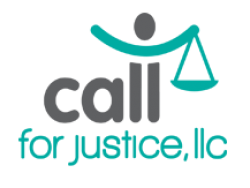
News: Call for Justice (Minnesota 2015)
Call for Justice, LLC is an innovative non-profit in Minneapolis that seeks to improve access to justice by connecting low-income people to existing legal resources, in partnership with United Way 211 and others. Through collaboration and training, Call f ...
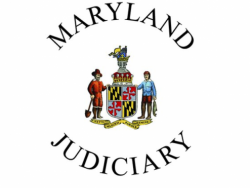
Report: Clearing a Path to Justice (MD Working Group on Self-Representation 2007)
This Report is a useful example for jurisdictions thinking about how to build analysis and support as they develop self-help services. From the table of contents: The Work Group on Self-Representation in the Maryland Courts................................ ...
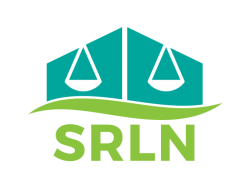
SRLN Brief: OCSE Guidance on Collaborative Child Support Activities (SRLN 2016)
The Office of Child Support Enforcement (OCSE) has developed a strong collaboration with the Department of Justice’s (DOJ) Access to Justice Initiative. The Access to Justice Initiative was established to improve access to justice in the criminal and civi ...
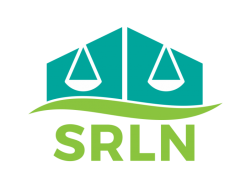
Survey: SRLN Tiers of Service Survey Tool (SRLN 2015)
The SRLN Tiers Survey was developed for states to conduct a quick tiered inventory of their court based self-help services. Tier 1 services are asynchronous (one-way), Tier 2 services are synchronous (two-way), and Tier 3 services integrate multiple provi ...
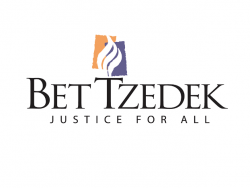
Report: Making Self-Help Work: Bet Tzedek’s Conservatorship Clinic (Bet Tzedek 2013)
Since 2007, Bet Tzedek Legal Services has been running a self-help conservatorship clinic in partnership with the Los Angeles Superior Court. Originally designed to serve 150 self-represented litigants per year, the program served more than 1,400 self-re ...
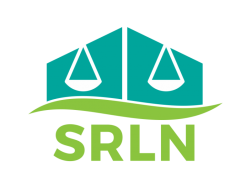
SRLN Brief: Rule 6.5- A Powerful Tool to Diversify Pro Bono and Transform Court Services (SRLN 2015)
Ethics rule 6.5 is a powerful tool to diversify pro bono programs and to transform court services because it allows unbundled lawyers to perform real time services in court-annexed programs without the onerous clerical burdens and limitations under the tr ...
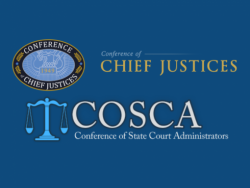
Resolution: In Support of Continuing Efforts to Meet Civil Legal Needs (CCJ/COSCA 2021)
In February of 2021, the Conference of Chief Justices and the Conference of State Court Administrators adopted Resolution 2 In Support of Continuing Efforts to Meet Civil Legal Needs. After extensive findings setting out the need, especially during the CO ...
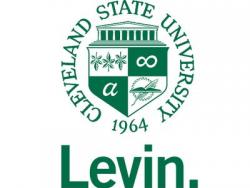
Article: Achieving Meaningful Partnerships with Nonprofit Organizations: A View from the Field (Mendel 2013)
This article addresses a topic of vital importance to the nonprofit sector: the dominant preference of institutional funders for visible partnerships and the reality that most of these are shallow relationships entered into by their participants to obtain ...
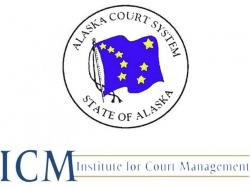
Article: Faster, Cheaper & As Satisfying: An Evaluation of Alaska’s Early Resolution Triage Program (Marz 2016)
The Alaska Court System, in partnership with the Alaska Pro Bono Program, created the Early Resolution Program (ERP) to address many issues with which courts across the country are grappling: how to efficiently and effectively manage divorce and custody c ...
Article: The Access To Justice “Sorting Hat” Towards A System Of Triage And Intake That Maximizes Access And Outcomes (Zorza 2012)
In this seminal article, Richard Zorza discusses the fact that we know little of the processes by which the millions of people who approach courts, legal aid intake systems, and hotlines are directed into them, or the access services they do or do not rec ...